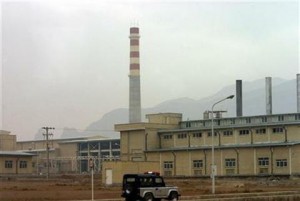 Even the miracle drawing that Prime Minister Benjamin Netanyahu displayed at the UN General Assembly has been forgotten. Has something happened in the interim that we don't know about?
Even the miracle drawing that Prime Minister Benjamin Netanyahu displayed at the UN General Assembly has been forgotten. Has something happened in the interim that we don't know about?Where has Iran disappeared to? Where is the existential threat that, until a few weeks ago, preoccupied the country, the Israel Defense Forces and the world? Even the miracle drawing that Prime Minister Benjamin Netanyahu displayed at the UN General Assembly has been forgotten. Has something happened in the interim that we don't know about?
Or perhaps someone is giving serious thought to what's happening in Syria? Russia and Turkey are already discussing a plan to oust President Bashar Assad; the United States views the coalition of opposition groups as an alternative government; and even Hezbollah is studying its options. Meanwhile, over in Egypt, a heated political battle is taking place that will determine not only the status and powers of its president, but also the character of the state and its relations with other countries in the region, Israel included.
But none of this interests Israel, which is on a campaign holiday at least until the end of January. Even the Israeli-Palestinian conflict has burst like a bubble. The uproar sparked by Palestine when it obtained the status of a nonmember observer state at the United Nations has ended with a whimper. And thus another existential threat has evaporated.
The question of whether or not there will be a third intifada is, of course, merely a "military issue," as if it bore no relationship to our diplomatic decisions or strategic worldview. The IDF, as we know, is "ready for any eventuality," and it will also be the one that determines Israel's policy in the territories. So why waste our leaders' valuable time on such technical issues?
After all, the real political debate is not over whether we need to withdraw from the territories, whether we should propose a diplomatic initiative or wait for the disappearance of Palestinian Authority President Mahmoud Abbas. The fateful question is whether Labor Party chairwoman Shelly Yacimovich needs to "start talking" about diplomatic issues, or whether she can make do with her "socioeconomic agenda." Netanyahu, of course, isn't expected to do anything.
The supreme political test is who will exploit the conflict most cleverly in order to obtain the most votes. And in this test, the "Palestinian vote" can only hurt the candidates.
Still, it's hard not to be encouraged by the fact that two existential threats - Iran and the Palestinian state - ultimately needed no more than an election campaign to disappear from the public agenda and the public discourse. We have thereby been granted three months of quiet, at least some of which ought to be devoted to one niggling little thought: Was the entire story of Iran and the Palestinian state nothing more than an Israeli political football?
After all, how have the lives of Israel's citizens changed now that Palestine has obtained a new status? Where are those Palestinian tanks and planes that were supposed to be advancing on Kfar Sava and Afula? So far, it seems as if it's actually the Palestinians who need protection - from Israel's long economic arm, which is withholding the PA's tax revenues.
Iran is a different matter. It has impressive technological capabilities and an ambition to become a regional power via its nuclear capability, and perhaps even nuclear weapons. But if Israel is able to rest on its laurels during the election campaign, after having given U.S. President Barack Obama - not Iranian President Mahmoud Ahmadinejad - a grace period until summer, how will it be able to remobilize international public opinion against Iran? Who will believe the existential threat anymore when Israel itself is making concessions to Iran - first to avoid harming Obama's reelection campaign, and then to conduct an Israeli election campaign devoid of any strategic declarations or decisions?
The upcoming election won't be about attacking Iran or reviving the peace process with the Palestinians. If these were the important issues, the twin swords that are ostensibly at Israel's throat would at least have merited a campaign slogan. Anyone who truly believed in these existential threats would have placed them at the top of his list of priorities and urged people to vote for him in order to be saved from them.
It's worth recalling this quiet when, in another two or three months, the battle over the budget emerges from hibernation and the Iranians and Palestinians once again make an appearance as Israel's dangerous enemies. A small increase in the budget, another few thousand houses for the settlers, and the threat will vanish. Israel has never been more secure.
By Haaretz
The Iran Project is not responsible for the content of quoted articles.










